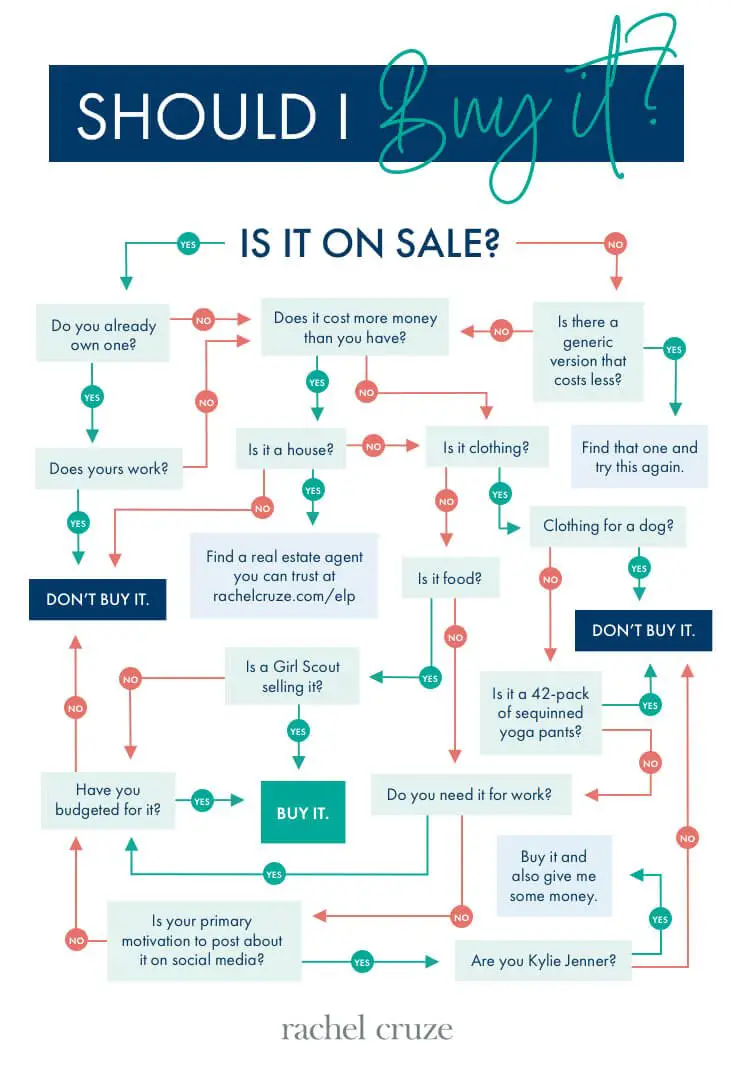Are you tired of making impulsive purchases and regretting it later? If you want to break free from the cycle of impulsive spending habits, you’ve come to the right place. This article will provide you with practical tips and strategies on how to avoid falling into the trap of buying on a whim. By implementing these proven methods, you can regain control over your finances and make more mindful choices when it comes to your purchases. So, if you’re ready to learn how to avoid impulsive spending habits and take charge of your financial well-being, keep reading.
How to Avoid Impulsive Spending Habits
Introduction
Impulsive spending can be a significant obstacle to achieving financial stability and reaching your financial goals. It can lead to unnecessary debt, financial stress, and hinder your ability to save for the future. However, with awareness, discipline, and a few strategies in place, you can overcome impulsive spending habits and regain control over your finances.
The Psychology Behind Impulsive Spending
Understanding the psychology behind impulsive spending is crucial for effectively tackling this habit. Several factors contribute to impulsive buying behavior:
Emotional Triggers
Emotions play a significant role in impulsive spending habits. Whether it’s stress, boredom, or sadness, people often turn to shopping as a way to cope with their feelings. Recognizing and addressing these emotional triggers is essential in breaking the cycle of impulsive spending.
Instant Gratification
The desire for instant gratification can override our rational decision-making process. We’re more inclined to make impulsive purchases when we prioritize short-term satisfaction over long-term financial well-being. Overcoming this tendency requires conscious effort and adopting a more mindful approach to spending.
Advertising and Marketing Techniques
Advertisers and marketers excel at creating a sense of urgency and desire for their products. By appealing to our emotions and creating a fear of missing out (FOMO), they manipulate us into making impulsive purchases. Recognizing these tactics and developing a critical eye can help us resist the urge to spend impulsively.
Creating a Budget
One of the most effective ways to avoid impulsive spending habits is by creating and sticking to a budget. A budget provides a clear overview of your income and expenses, allowing you to allocate your money intentionally. Here are some steps to create a budget:
Evaluate Your Finances
Start by assessing your current financial situation. Determine your monthly income, fixed expenses (like rent or mortgage payments), and variable expenses (such as groceries, entertainment, etc.). This evaluation will help you gain a comprehensive understanding of your financial standing.
Set Financial Goals
After assessing your finances, establish your short-term and long-term financial goals. Whether it’s paying off debt, saving for a down payment, or building an emergency fund, clearly defining your goals will give you a sense of purpose and motivation to stick to your budget.
Track Your Expenses
Keep track of every penny you spend for at least a month. Use mobile apps, spreadsheets, or budgeting software to track your expenses accurately. This step will help you identify areas where you tend to overspend and allow you to adjust your budget accordingly.
Allocate Your Income
Distribute your income among different expense categories based on your financial goals and priorities. Ensure that your essential expenses are covered first, followed by savings and investments. Lastly, allocate a portion of your income for discretionary spending or occasional treats.
Review and Adjust Regularly
Regularly review your budget to ensure it aligns with your current financial situation and goals. Adjustments may be necessary as circumstances change. Stay flexible and make revisions whenever required to maintain a realistic and manageable budget.
Practicing Mindful Spending
Cultivating mindful spending habits can help you break impulsive spending patterns. By adopting a more deliberate and conscious approach to your purchases, you can regain control over your spending. Here are some strategies to practice mindful spending:
Create a Waiting Period
When you’re tempted to make an impulsive purchase, impose a waiting period before making the final decision. This delay allows you to step back, reevaluate the necessity of the purchase, and consider its long-term impact on your finances. Often, the urge to buy will diminish during this waiting period.
Make a Shopping List
Before heading out to the store, create a shopping list based on your needs and priorities. Stick to this list and avoid deviating from it. This approach prevents you from being swayed by impulse purchases and keeps your spending focused.
Set Spending Limits
Establish spending limits for different expense categories. This strategy helps you stay within your budget and prevents overspending. Consider using cash envelopes or digital budgeting tools to allocate specific amounts for different spending areas.
Avoid Temptation
Limit your exposure to situations that may trigger impulsive spending. Unsubscribe from marketing emails, avoid unnecessary window shopping, and unfollow brands or influencers that promote excessive consumerism. Surround yourself with like-minded individuals who support your financial goals.
Building Emotional Resilience
Addressing the emotional triggers that lead to impulsive spending is crucial for long-term success. Building emotional resilience helps you manage stress, boredom, or other emotions without resorting to impulsive buying. Here are some strategies to build emotional resilience:
Practice Self-Care
Engage in activities that promote relaxation and emotional well-being. Regular exercise, meditation, journaling, or spending time in nature can help reduce stress levels and provide healthier outlets for negative emotions.
Find Alternative Coping Mechanisms
Identify healthier ways to cope with negative emotions instead of turning to impulsive spending. Reach out to friends or loved ones for support, engage in hobbies, listen to music, or practice deep breathing exercises. Find what works best for you and incorporate these strategies into your daily routine.
Develop a Supportive Network
Surround yourself with individuals who share your financial goals and values. Engage in discussions about personal finance, seek advice, and provide support to one another. Having a strong support network can help you stay motivated and accountable to your financial commitments.
Rewarding Yourself Strategically
While avoiding impulsive spending, it’s essential to reward yourself occasionally to maintain motivation and celebrate milestones. However, these rewards should align with your financial goals and not derail your progress. Here’s how to reward yourself strategically:
Plan and Budget for Treats
Allocate a small portion of your budget for occasional treats or rewards. By planning and budgeting for these indulgences, you can enjoy them guilt-free without compromising your financial stability or progress.
Non-Monetary Rewards
Not all rewards need to involve spending money. Consider non-monetary rewards such as enjoying a day off, spending quality time with loved ones, or indulging in a favorite hobby. These rewards can be just as satisfying and meaningful.
Celebrate Milestones
When you achieve significant financial milestones or make progress towards your goals, take a moment to celebrate. Acknowledging your achievements boosts your motivation and reinforces the positive habits you’ve developed.
Overcoming impulsive spending habits requires a combination of self-awareness, discipline, and implementing practical strategies. By understanding the psychology behind impulsive buying, creating a budget, practicing mindful spending, building emotional resilience, and rewarding yourself strategically, you can regain control over your finances and achieve long-term financial stability. Remember, breaking impulsive spending habits is a journey that requires commitment and patience, but the rewards are well worth it. Take the first step today towards a healthier financial future.
4 Tips To Stop Impulse Buying [Minimalism Series]
Frequently Asked Questions
Frequently Asked Questions (FAQs)
How can I avoid impulsive spending habits?
By following these tips, you can avoid impulsive spending habits:
What are some strategies to curb impulsive buying?
To curb impulsive buying, you can try the following strategies:
How can I resist the urge to make impulsive purchases?
To resist the urge to make impulsive purchases, consider the following:
Are there any practical steps I can take to control my impulsive spending?
Yes, here are some practical steps that can help you control your impulsive spending:
What should I do if I feel tempted to make an impulsive purchase?
If you feel tempted to make an impulsive purchase, try these steps:
How do I differentiate between necessary and impulsive purchases?
To differentiate between necessary and impulsive purchases, follow these guidelines:
What are the benefits of creating a budget to avoid impulsive spending?
Creating a budget can offer several benefits in avoiding impulsive spending:
Is it helpful to have a savings goal while trying to avoid impulsive spending?
Having a savings goal can be highly beneficial in avoiding impulsive spending:
Final Thoughts
To avoid impulsive spending habits, it is important to develop self-awareness and establish a budget. Start by identifying your triggers and understanding the emotions driving your impulse to spend. Take a moment before making a purchase to consider its long-term value and necessity. Additionally, try implementing a 24-hour rule, allowing yourself time to reflect on whether the purchase is truly needed. Focus on setting achievable financial goals and regularly track your spending to stay accountable. By adopting these practices and staying mindful of your impulses, you can successfully avoid impulsive spending habits.



